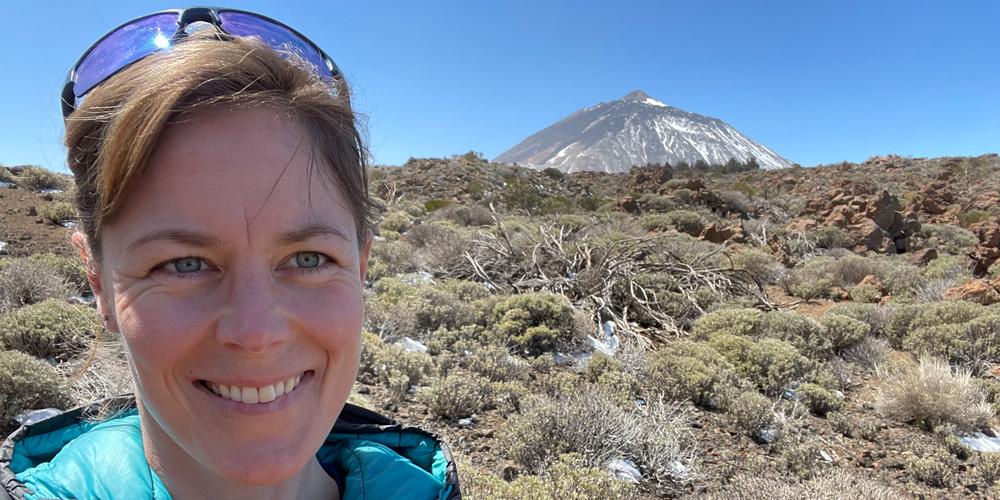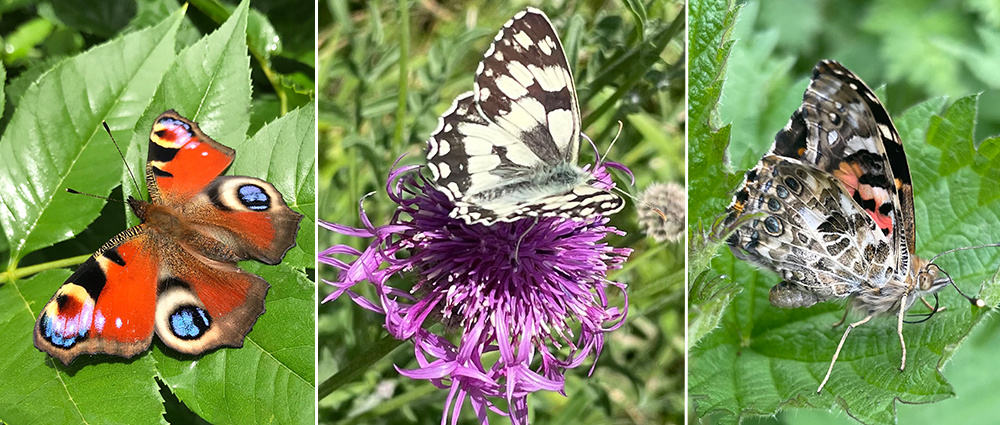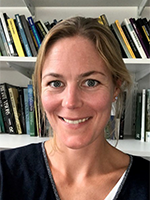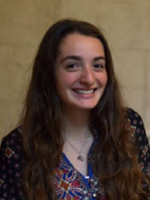From Irish farm to Oxford University: An ecologist's journey

Dr Chloë Strevens is interviewed by student Raphaella Mascia on her journey from growing up on her family's farm in Ireland to becoming an ecologist and Course Director of Oxford University's Biodiversity, Conservation, and Management master's programme.
Her story begins on a farm in County Westmeath, Ireland. The farm, named Bethlehem, is beautiful—a place to connect with the earth under foot, the cloudy skies above, and the wonders of nature in front of you. Dr Chloë Strevens, an ecologist by training and the current course director for the MSc in Biodiversity, Conservation, and Management, says it was the place where her story as a researcher and scientist — but also, and most essentially — as a person, began.
“There were dry bits, scrubby bits, peaty bits, and wet bits… To this day it is one of the most special places I’ve ever been.”
Chloë grew up on a farm which had been in her family since the 1940s and which allowed her the opportunity to uniquely understand the human-nature relationship, a topic that continues to inspire her research today. Inspired by her love of nature, she decided to study natural sciences at university. “I moved [from the farm] to Dublin to study for my Bachelor of Science in Zoology at Trinity College Dublin. It gave me my first experience of fieldwork, which mainly featured early morning bird surveys and observation.”
But when she graduated undergraduate in the early 2000s, the job opportunities for conservation remained few and far between. So, immediately after graduation, she took a short-term position as a data analyst at a bank, which lasted less than a year.
“To do work in conservation, I had to take volunteer positions to gain experience in the field. First in Botswana studying leopard and cheetah interactions with local communities then with WildCRU at Oxford’s Biology Department, doing fieldwork with otters, minks, and polecats.”
Even though the volunteer fieldwork position involved some grueling long, cold, late nights and she had to work part-time jobs to stay afloat financially, it would eventually lead Dr Strevens to her DPhil supervisor. She graduated in 2010 with a DPhil from Oxford Department of Biology, specializing in mathematical ecology and modeling population dynamics of the cowpea seed beetle Callosobruchus maculatus.
After taking a few postdoctoral appointments at Oxford, Dr Strevens recognized the difficulty of pursuing a career in academia while also having a family. “For me, it was untenable to do short-term post-doc positions while having a young family,” she said. And so she made a switch, working at the intersection of policy and business at the UN Environment’s World Conservation Monitoring Center in Cambridge. Six years and two children later, Dr Strevens felt the pull once again to work in academia.
“I wanted to be at the cutting edge of research again, but returning to academia was not—is not—an easy task.”
To return to Oxford, she was awarded a Daphne Jackson Fellowship, a fellowship designed for people to return to academia after a break due to familial or illness-related circumstances, with the assistance of her former DPhil supervisor. This Fellowship formed a part of the Biology Department’s Athena SWAN initiative aimed at increasing gender equality in academia and STEM. These initiatives “created a pathway for me back to Oxford,” said Strevens. Ultimately, her Fellowship paved the way to her current position as director of the Biodiversity, Conservation, and Management master’s course. “The relationships I made along the way, with my supervisor and colleagues, have been critical for my career success.”

Recently, Dr Strevens has been involved with a wide array of research, or as she identifies herself, she is “something of a generalist” as her research reflects the interests of the students she advises as the course director of the MSc in Biodiversity, Conservation, and Management.
“Three current projects range from subjects like fire and rewilding to land tenure of the Maasi people in Kenya to benthic ecology in Antarctica.”
But her main research interests return to her roots on the farm in Ireland: her primary interests lie in agri-policy. Her research has particularly focused on conservation in agricultural landscapes including topics like butterfly conservation in the English countryside and farmers’ role in conservation policy and decision-making to name a few. She is also working at the intersection of agriculture and ecology through current partnerships in Durlston Country Park in Dorset and Ekiti State in Nigeria.
“The reality of a peopled nature is important. I believe that conservation starts at home and the most important people are not always those involved with high-level policy and decision-making. We need to understand how to make genuine shifts to community conservation.”
And what advice does Chloë have for students and other researchers?
“I would encourage students to be ambitious. Progress may not be linear in your career. Be accepting of new opportunities because you can always turn back if you just keep your eye on the goal.”
Her advice reflects her experiences as someone who has gone through many stages within the course of her conservation career, from a volunteer in Botswana to undertaking a DPhil in a field relatively new to her (mathematical ecology) to leaving research to start a family and returning after she realized how much she missed being in such innovative spaces. Through her current research, she has also returned, once again, back to the place where it all began: her family’s farm in Ireland.
“I started with a passion, growing up on a farm and have returned to that. I took a long-term approach.”

Dr Chloë Strevens is a Departmental Lecturer in SoGE and the Course Director of the MSc and MPhil in Biodiversity, Conservation and Management. She holds a First Class BA Hons from the Zoology Department in Trinity College Dublin (Ireland) and a DPhil from Oxford University.

Raphaella Mascia is a School of Geography and the Environment Science Writer and graduate student studying for an MSc in Biodiversity, Conservation and Management.
From Irish farm to Oxford University: An ecologist's journey
Dr Chloë Strevens is interviewed by student Raphaella Mascia on her journey from growing up on her family's farm in Ireland to becoming an ecologist and Course Director of Oxford University's Biodiversity, Conservation, and Management master's programme.




